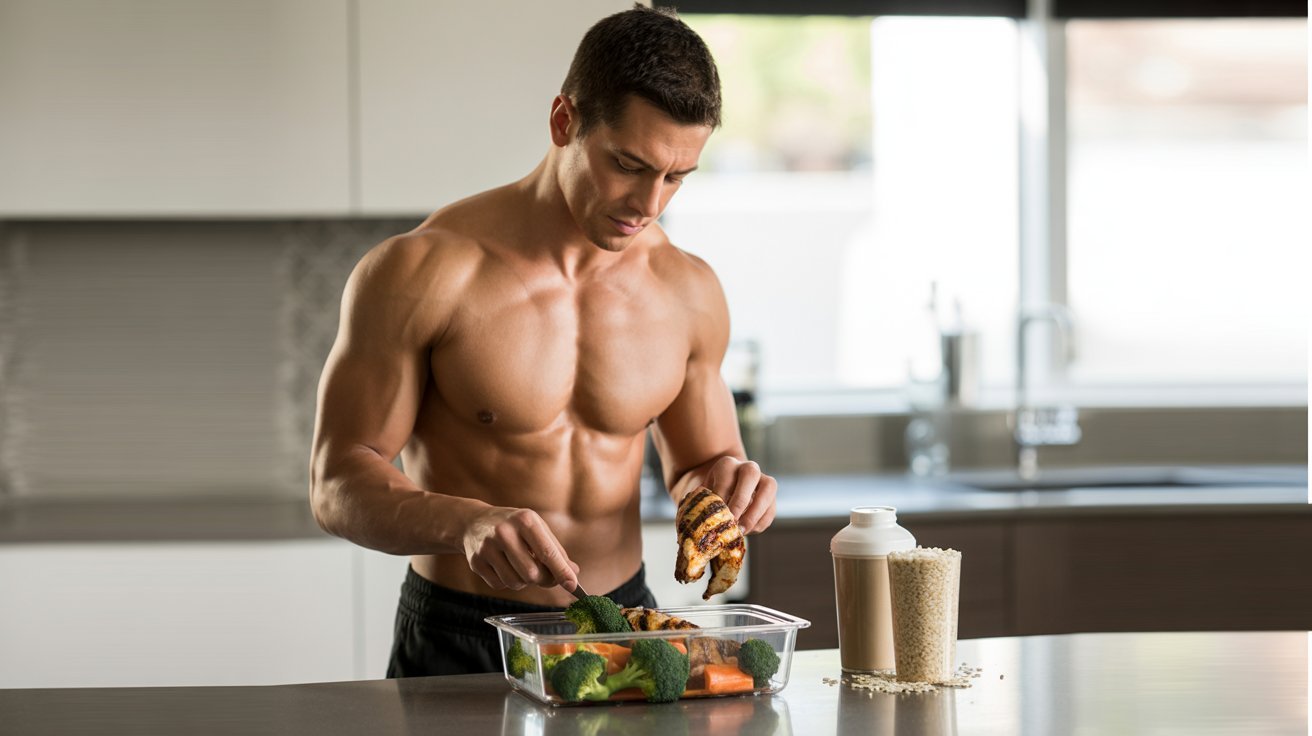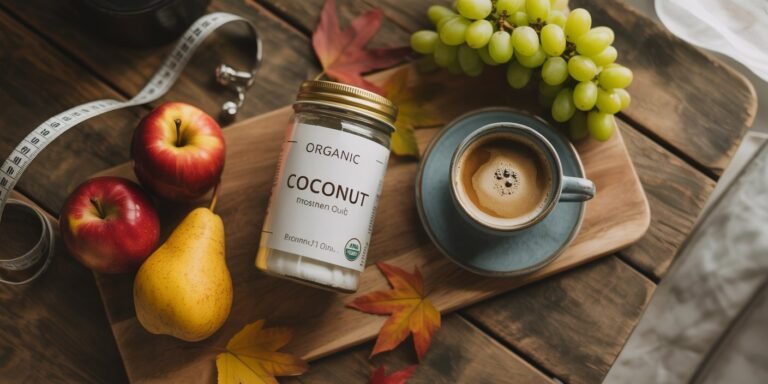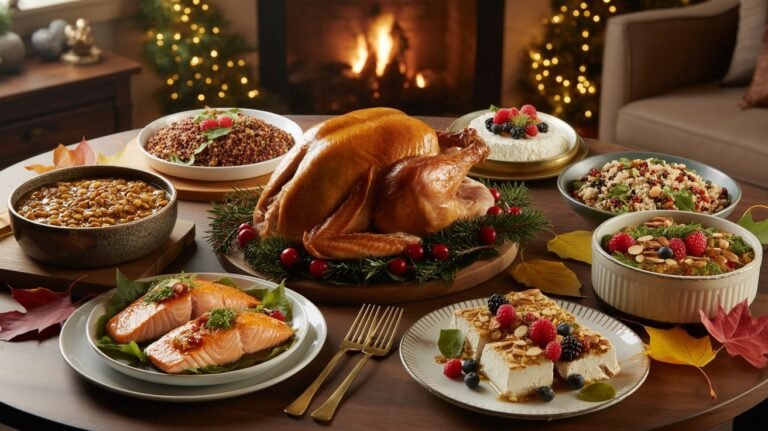When it comes to building muscle, most men immediately think of lifting heavier weights, adding more sets to their workouts, or pushing themselves harder in the gym.
While training is absolutely important, the truth is that muscle growth doesn’t just happen under the barbell — it happens in the kitchen.
The foods you eat directly determine how fast you build lean mass, how much strength you gain, and how quickly your body recovers from tough workouts.
That’s where a muscle-building diet plan comes into play. If your goal is to build mass fast, you need the right balance of protein, carbs, healthy fats, and calories to fuel growth.
Think of your diet as the foundation — the workouts are the spark, but nutrition is the fuel that keeps the fire burning strong.
Unfortunately, many men either undereat (not giving their body enough calories to grow) or eat the wrong types of foods (fast food, processed snacks, sugary drinks) that pack on fat instead of muscle.
The key is to follow a structured meal plan that prioritizes nutrient-dense, muscle-friendly foods while keeping your metabolism running high.
In this guide, we’ll walk through the ultimate diet plan for muscle building, designed specifically for men who want to gain size, strength, and definition in the shortest possible time. You’ll discover:
✅ The best macronutrient breakdown for muscle growth
✅ The top foods every man should include for maximum gains
✅ A sample daily meal plan to take the guesswork out of eating
✅ Pro tips on timing your meals, supplements, and recovery
By the end, you’ll have a step-by-step blueprint that not only helps you bulk up effectively but also keeps your gains lean and powerful. No fluff, no fad diets — just a proven system that works.
Heads up, guys: This post may contain affiliate links, which means we may earn a small commission if you make a purchase — at no extra cost to you. We only recommend muscle-building supplements, high- protein foods, and fitness tools we genuinely trust to help you bulk up and build serious mass, faster.
1. Understanding Muscle Gain Nutrition
When it comes to building muscle, workouts are only half the equation—nutrition is the other half.
Think of your body like a construction site: strength training provides the blueprint and stimulation, but food supplies the raw materials your muscles need to grow and repair.
Without the right nutrition, you may be training hard but missing out on real gains.
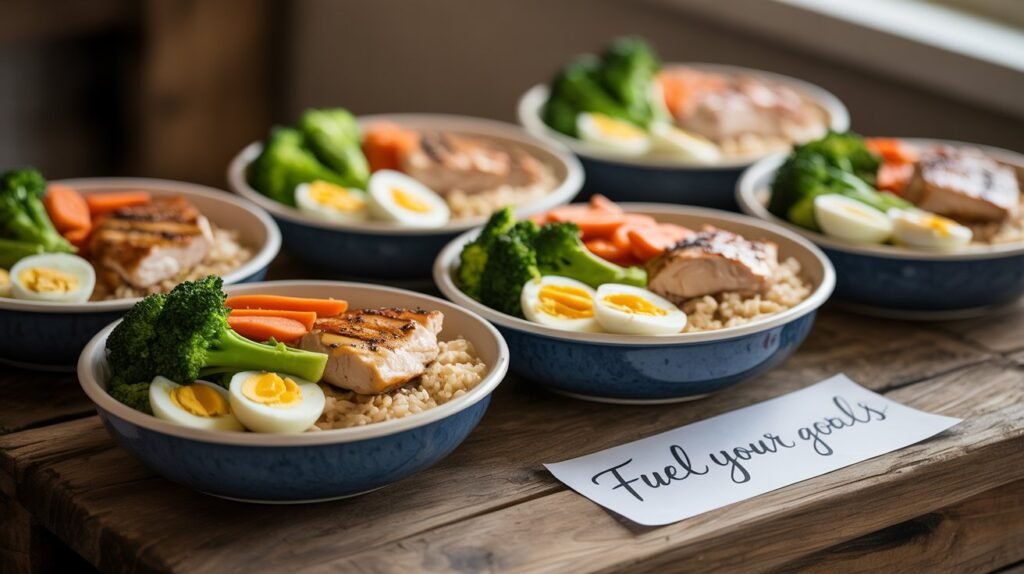
The Core Principles of Muscle Gain Nutrition
✅ Caloric Surplus
To gain muscle, you need to eat more calories than your body burns in a day. This surplus provides the extra energy required for muscle repair and growth. A good starting point is adding about 250–500 calories above your maintenance level daily. This ensures steady muscle gain without excessive fat gain.
✅ Macronutrient Balance
Your body needs the right ratio of proteins, carbohydrates, and fats:
- Protein (1.6–2.2g per kg of body weight): The building block of muscle. Protein helps repair muscle fibers torn during workouts and stimulates new growth.
- Carbohydrates (45–55% of total calories): Your body’s main energy source. Carbs fuel workouts, support recovery, and prevent protein from being used as energy.
- Healthy Fats (20–30% of total calories): Essential for hormone production (like testosterone), joint health, and overall energy balance.
✅ Meal Timing Matters
While total daily intake is most important, nutrient timing can enhance results. For example:
- Pre-workout: Eat a balanced meal with carbs and protein 1–2 hours before training for energy.
- Post-workout: Refuel with protein and fast-digesting carbs (like chicken and rice or a protein shake with fruit) to kickstart recovery.
✅ Hydration
Muscle tissue is about 75% water, and dehydration can reduce strength, endurance, and recovery. Aim for at least 3 liters of water per day, and more if you train intensely.
Micronutrients & Muscle Growth
It’s not just about macros—vitamins and minerals also play a role in performance and recovery:
- Vitamin D & Calcium: Support bone strength for heavy lifting.
- Magnesium & Potassium: Help with muscle contraction and prevent cramps.
- Iron: Ensures efficient oxygen transport for endurance during workouts.
Clean vs. Dirty Bulking
When aiming for muscle gain, not all calorie surpluses are equal:
- Clean Bulking: Focuses on nutrient-dense foods (lean proteins, whole grains, healthy fats, fruits, and vegetables). This method promotes lean muscle gain with minimal fat.
- Dirty Bulking: Involves eating high-calorie, often unhealthy foods to gain size quickly. While effective for rapid weight gain, it often leads to excess fat storage and health issues.
The Bottom Line
Muscle gain isn’t about eating everything in sight—it’s about strategic nutrition. With a slight calorie surplus, balanced macros, and consistent hydration, your body will have the fuel it needs to build muscle efficiently.
Pair this with progressive strength training, and you’ll be on the path to steady, sustainable gains.

Build Muscle Faster With the #1 Whey Protein for Men
Don’t just follow the plan — fuel your gains with the most trusted whey protein on the market.
Optimum Nutrition Gold Standard Whey delivers 24g of high-quality protein per scoop, helping you build lean muscle, recover faster, and hit your macros without the guesswork.
✅ Over 200,000 reviews on Amazon
✅ Fast-digesting for post-workout recovery
✅ Low in sugar, high in results
✅ Tastes great in water or shakes
👉 Get Your Gold Standard Protein on Amazon Now
3. 7-Day Meal Plan for Muscle Gain (Male Focused)
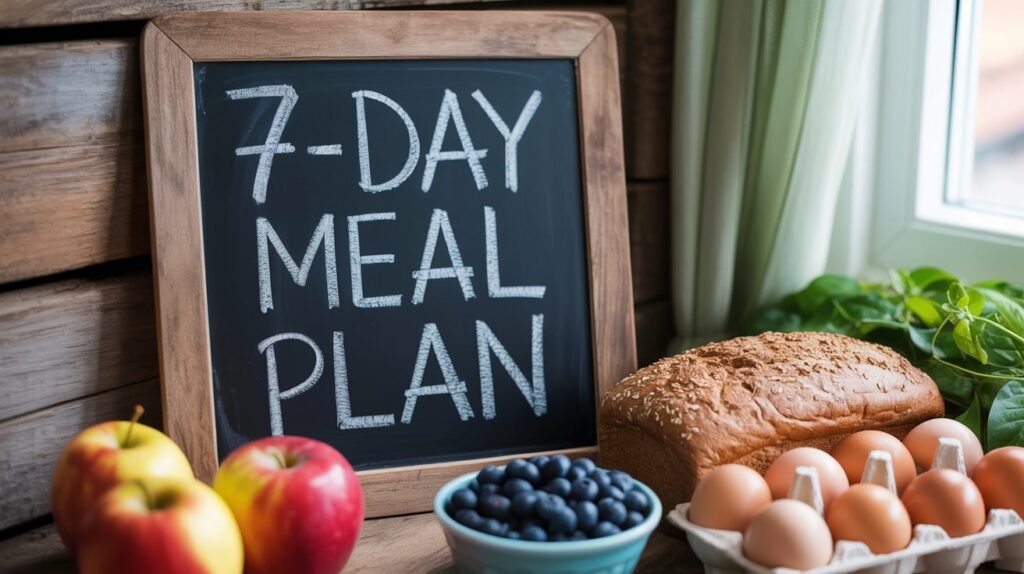
Day 1
Breakfast:
- 4 whole eggs + 2 egg whites scrambled in olive oil
- 2 slices whole-grain toast with avocado
- 1 banana
- 1 glass of whole milk
Snack:
- Protein smoothie (whey, oats, peanut butter, frozen berries, almond milk)
Lunch:
- 200g chicken breast
- 1.5 cups brown rice
- 1 cup broccoli + 1 tbsp olive oil
Snack:
- 1 cup Greek yogurt
- 1 tbsp honey
- Handful of walnuts
Dinner:
- 200g salmon
- 2 medium baked potatoes
- Mixed salad with olive oil dressing
Before Bed:
- Cottage cheese + 1 tbsp peanut butter
Day 2
Breakfast:
- Overnight oats (1 cup oats, whey protein, almond butter, chia seeds, berries, whole milk)
Snack:
- 2 boiled eggs + handful of almonds
Lunch:
- 200g lean beef
- 1 cup quinoa
- Roasted veggies (carrots, zucchini, bell peppers)
Snack:
- Protein bar + apple
Dinner:
- 200g chicken thighs
- 1.5 cups sweet potato mash
- Steamed green beans
Before Bed:
- Casein shake + 1 tbsp almond butter
Day 3
Breakfast:
- Omelet (3 eggs, spinach, mushrooms, cheese)
- 2 slices whole-grain bread
- 1 orange
Snack:
- Smoothie (protein powder, oats, banana, peanut butter, milk)
Lunch:
- 200g turkey breast
- 1.5 cups rice
- Roasted broccoli + olive oil
Snack:
- 1 cup cottage cheese with pineapple chunks
Dinner:
- 200g steak
- 1.5 cups roasted potatoes
- Side salad with olive oil
Before Bed:
- Greek yogurt + mixed nuts
Day 4
Breakfast:
- 4 eggs scrambled with cheese
- 2 slices whole-grain toast
- 1 glass orange juice
Snack:
- Protein shake + oats + peanut butter
Lunch:
- 200g grilled chicken breast
- 1.5 cups pasta with marinara sauce
- Steamed spinach
Snack:
- Trail mix (nuts, raisins, seeds, dark chocolate pieces)
Dinner:
- 200g salmon or cod
- 1 cup quinoa
- Roasted asparagus
Before Bed:
- Casein protein + almond butter
Day 5
Breakfast:
- Protein pancakes (made with oats, whey, eggs) topped with peanut butter and banana slices
- 1 glass whole milk
Snack:
- 2 boiled eggs + handful of mixed nuts
Lunch:
- 200g beef mince (lean ground beef)
- 1.5 cups rice
- Steamed peas and carrots
Snack:
- Smoothie (protein powder, oats, almond butter, berries)
Dinner:
- 200g chicken thighs
- 2 medium sweet potatoes
- Side salad
Before Bed:
- Greek yogurt with honey and almonds
Day 6
Breakfast:
- 4 scrambled eggs
- 2 slices whole-grain toast with peanut butter
- 1 apple
Snack:
- Protein bar + handful of cashews
Lunch:
- 200g grilled turkey or chicken breast
- 1.5 cups rice or couscous
- Steamed broccoli + olive oil
Snack:
- Cottage cheese + mixed fruit
Dinner:
- 200g salmon
- 1.5 cups roasted potatoes
- Steamed spinach
Before Bed:
- Casein shake + 1 tbsp almond butter
Day 7
Breakfast:
- Smoothie bowl (protein powder, oats, peanut butter, banana, almond milk, topped with granola)
Snack:
- 2 boiled eggs + handful of walnuts
Lunch:
- 200g lean beef steak
- 1.5 cups brown rice
- Side of roasted vegetables
Snack:
- Greek yogurt + berries + honey
Dinner:
- 200g grilled chicken thighs
- 2 baked sweet potatoes
- Steamed green beans
Before Bed:
- Cottage cheese + 1 tbsp peanut butter
✅ Pro Tips for Following This Plan:
Combine with progressive strength training for best results.
Adjust portion sizes if you’re above or below 70–80 kg (155–175 lbs).
Drink 3–4 liters of water daily.
Don’t skip snacks — they provide the calorie surplus needed for growth.
4. 30-Day Muscle Building Diet Strategy
Building muscle isn’t about eating randomly—it’s about following a structured plan that provides enough calories, protein, carbs, and fats every single day.
A 30-day strategy helps you stay consistent, track progress, and avoid falling off track when motivation dips.
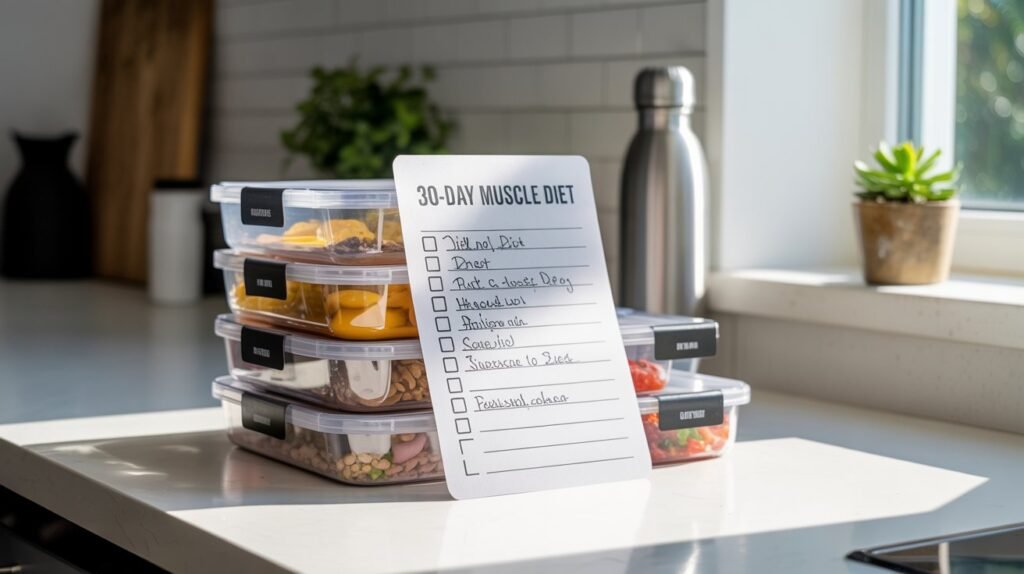
Step 1: Calculate Your Calorie Target
- Find your maintenance calories (the amount your body needs to maintain weight).
- Add 300–500 calories daily for lean muscle gain.
- Example: If maintenance = 2,500 calories, aim for 2,800–3,000 calories per day.
Tip: Use a free online calculator, then adjust if weight isn’t increasing after 2 weeks.
Step 2: Set Your Macros (Protein, Carbs, Fats)
- Protein: 1.6–2.2 g per kg body weight (essential for muscle repair).
- Carbohydrates: 45–55% of total calories (main energy source).
- Fats: 20–30% of total calories (supports hormones like testosterone).
✅ Example for a 75 kg male eating 3,000 calories:
- Protein: ~150–165g
- Carbs: ~375–400g
- Fat: ~75–85g
Step 3: Structure Your Daily Eating Plan
Eat 4–6 meals/snacks per day to spread nutrients evenly:
- Meal 1 (Breakfast): Eggs, oats, fruit
- Meal 2 (Snack): Protein shake + nut butter
- Meal 3 (Lunch): Lean protein + rice/potatoes + veggies
- Meal 4 (Snack): Greek yogurt + nuts/fruit
- Meal 5 (Dinner): Fish/chicken/beef + carb source + veggies
- Meal 6 (Optional Night Snack): Cottage cheese or casein shake
If you struggle to eat enough, rely on high-calorie shakes (blend oats, peanut butter, banana, whey, and milk).
Step 4: Weekly Food Variety (to Avoid Boredom)
Week 1–2
- Focus on simple staple meals: chicken, rice, eggs, oats, salmon, potatoes.
- Build consistency first.
Week 3–4
- Add variety: turkey, lean beef, quinoa, pasta, lentils, Greek yogurt.
- Experiment with new recipes (chili, burrito bowls, stir-fries).
- Rotate protein sources to avoid “chicken and rice burnout.”
Step 5: Pre- & Post-Workout Fueling
- Pre-workout (1–2 hrs before): Carbs + protein (e.g., oats with whey or rice with chicken).
- Post-workout (within 1 hr): Fast-digesting carbs + protein (e.g., protein shake with banana, or chicken + rice).
- This ensures maximum muscle repair and glycogen replenishment.
Step 6: Track & Adjust Every 7 Days
- Weigh yourself 1–2x per week (same time of day, ideally morning).
- Goal: Gain 0.25–0.5 kg (0.5–1 lb) per week.
- If you’re not gaining → add +200 calories daily.
- If gaining too much fat → reduce by -150 calories.
Step 7: Supplement Smartly (Optional)
Supplements aren’t magic, but they can help fill gaps:
- Whey protein: Convenient way to hit protein targets.
- Creatine monohydrate: Boosts strength and muscle fullness.
- Omega-3s: Supports recovery and joint health.
- Multivitamin: Covers micronutrient gaps.
Step 8: Stay Consistent for 30 Days
The secret to this strategy isn’t in fancy meals—it’s in showing up daily. Even if you don’t hit your macros perfectly, consistency over 30 days will compound into visible results.
✅ The Bottom Line
This 30-day muscle building diet strategy is about eating in a calorie surplus, prioritizing protein, balancing macros, and being consistent with your meals.
Pair it with progressive strength training, and you’ll gain noticeable size, strength, and definition in just one month.
5. Gym Diet Plan for Muscle Gain
If you’re training hard in the gym but not seeing results, chances are your diet isn’t matching your workouts.
Lifting weights tears down muscle fibers, but food is what rebuilds them stronger and bigger. A gym-focused diet plan ensures your body gets the fuel it needs to train hard, recover fast, and grow lean muscle.
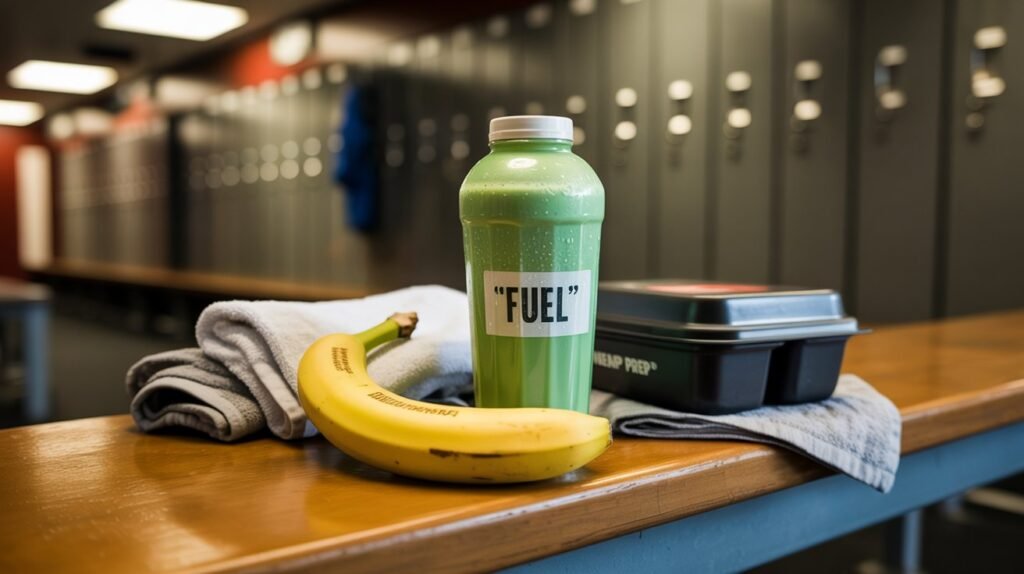
Key Principles of a Gym Diet for Muscle Gain
✅ Eat in a Calorie Surplus
Training burns calories, so you need to eat 300–500 extra calories daily to support growth.
✅ Protein in Every Meal
Aim for 1.6–2.2 g protein per kg body weight spread across 4–6 meals. Protein triggers muscle repair and growth after training.
✅ Carbs as Training Fuel
Carbs provide the energy you need to lift heavy and recover. Stick with complex carbs like oats, rice, pasta, and sweet potatoes.
✅ Healthy Fats for Hormones
Fats support testosterone, which is vital for muscle building. Include sources like olive oil, nuts, avocado, and fatty fish.
✅ Hydration = Strength
Even slight dehydration reduces gym performance. Drink 3–4 liters of water daily.
Sample Gym Diet Plan for Muscle Gain (3,000 Calories)
Here’s a practical daily diet plan for a man training 4–6 days per week:
Meal 1 – Pre-Workout Breakfast
- 3 whole eggs + 3 egg whites (scrambled)
- 2 slices whole-grain toast
- 1 banana
- 1 glass of milk
Meal 2 – Post-Workout Shake
- Whey protein powder (1–2 scoops)
- 1 cup oats (blended in)
- 1 tablespoon peanut butter
- 1 cup mixed berries
- Water or almond milk
Meal 3 – Lunch
- 200g chicken breast or lean turkey
- 1.5 cups brown rice
- 1 cup broccoli + olive oil drizzle
Meal 4 – Snack
- Greek yogurt (2 cups)
- 1 tablespoon honey
- 1 handful of almonds or walnuts
Meal 5 – Dinner
- 200g salmon or lean beef
- 2 medium sweet potatoes
- Steamed green beans or spinach
- ½ avocado
Meal 6 – Night Snack (Before Bed)
- Cottage cheese or casein protein shake
- 1 tablespoon almond butter
- 1 small apple or berries
Pre- & Post-Workout Fueling
- Before Gym (1–2 hrs prior): A mix of protein + carbs (e.g., chicken & rice or eggs & oats) for energy.
- After Gym (within 60 mins): Protein + fast-digesting carbs (whey shake + banana) for recovery.
Supplements That Can Help (Optional)
- Whey Protein: Easy way to hit daily protein targets.
- Creatine Monohydrate: Boosts strength and performance in the gym.
- Omega-3s: Helps reduce inflammation from heavy training.
- Multivitamin: Ensures micronutrient balance for energy and recovery.
Bottom Line:
A gym diet plan isn’t about eating fancy meals—it’s about consistency, calorie surplus, and nutrient timing. S
tick to a structured eating routine, pair it with progressive overload in your workouts, and you’ll build muscle faster than ever.
6. Free Diet Plan for Muscle Gain
A lot of guys think that building muscle requires expensive supplements, high-end protein powders, or complicated meal delivery services. The truth?
You can build serious muscle on a budget with the right approach to food and consistency in your training.
A free diet plan for muscle gain is all about using affordable, nutrient-dense foods that maximize protein intake, provide steady energy from carbs, and include healthy fats to support recovery and hormones.
The beauty of this kind of plan is that it works for students, beginners, and anyone on a tight budget. As long as you hit your calorie and protein needs, you’ll see results — without draining your wallet.
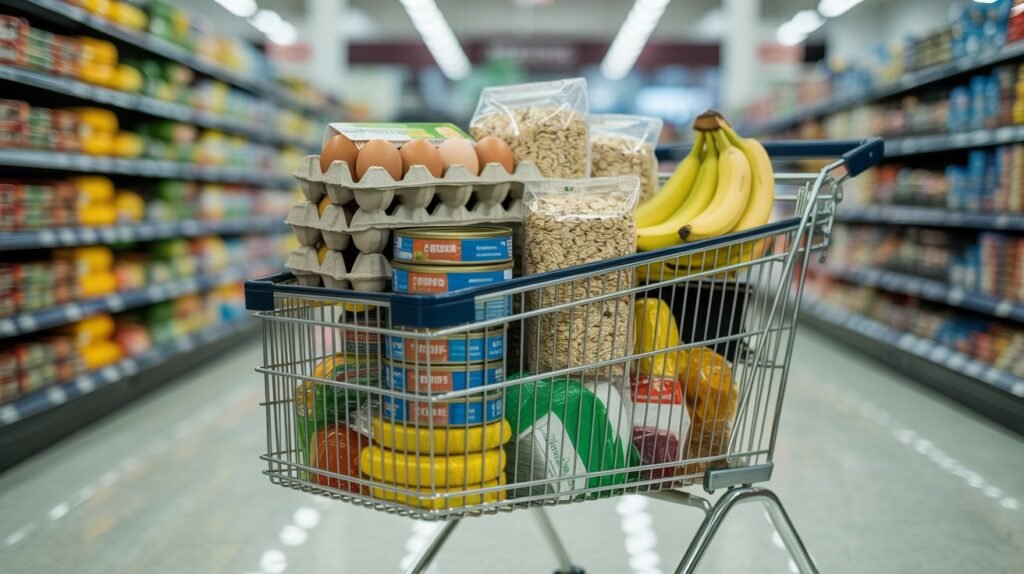
Core Principles of a Free Muscle Gain Diet
- Protein Is King
Protein is the building block of muscle. Without it, your workouts won’t translate into gains. Aim for at least 1.6–2.2 grams of protein per kilogram of body weight daily. Cheap protein sources include:- Eggs (boiled, scrambled, or omelets)
- Canned tuna or sardines
- Chicken breast or thighs (buy in bulk)
- Lentils, beans, chickpeas
- Milk, yogurt, and cottage cheese
- Carbs Are Fuel
Many skinny guys under-eat carbs, which makes it harder to train hard and grow. Carbs give you the glycogen needed to crush your gym sessions. Stick with low-cost staples such as:- Oats
- Brown or white rice
- Potatoes and sweet potatoes
- Whole-grain bread
- Bananas and seasonal fruits
- Healthy Fats for Hormones
Testosterone and other growth hormones need fat to function. Without enough, muscle growth slows. Affordable options include:- Peanut butter
- Olive oil or canola oil
- Nuts and seeds (buy in bulk packs)
- Eggs (double win: protein + fats)
- Meal Frequency & Timing
You don’t need to eat every 2 hours, but spreading food across 4–6 meals helps you stay fueled and prevents overeating junk food. A steady flow of nutrients means better recovery and less hunger. - Hydration
Water is free but often overlooked. Muscles are about 75% water, and dehydration kills performance. Drink throughout the day, not just when thirsty.
Sample Free Diet Plan for Muscle Gain (One Day Example
Here’s a simple budget-friendly daily meal plan to help you pack on muscle without overspending:
- Breakfast (7–8 AM):
3 boiled eggs + 1 cup of oats with sliced banana and a spoon of peanut butter - Snack (10–11 AM):
2 slices of whole-grain bread with peanut butter + 1 apple - Lunch (1 PM):
150g grilled chicken (or 1 cup lentils for vegetarians) + 1 cup rice + mixed veggies - Snack (4 PM):
1 cup low-fat yogurt or cottage cheese + handful of nuts or seeds - Dinner (7 PM):
1 can of tuna (or mackerel) + 2 medium potatoes + fresh salad with olive oil - Before Bed (9–10 PM):
1 glass of milk + 1 boiled egg or a spoonful of peanut butter
Free & Budget-Friendly Grocery Staples for Muscle Gain
- Proteins: Eggs (buy crates), canned fish, chicken thighs, dried beans/lentils
- Carbs: Oats, rice, potatoes, pasta, whole-grain bread
- Fats: Peanut butter, olive/canola oil, bulk nuts
- Extras: Milk, yogurt, seasonal fruits, frozen veggies (cheaper than fresh sometimes)
Pro tip: Buy in bulk, cook in batches, and freeze portions. Not only is it cheaper, but it also saves you time during the week.
Why This Free Diet Plan Works
This plan focuses on high-protein, high-calorie, and nutrient-dense foods that don’t cost much. By combining animal and plant-based proteins, you cover all essential amino acids. The carb sources give you energy to train harder, and the fats keep your hormones balanced.
You don’t need expensive shakes — in fact, many bodybuilders built their foundation on milk, eggs, rice, beans, and chicken long before supplements were popular.
Remember: Consistency beats perfection. If you stick to a free diet plan, track your calories, and train progressively in the gym, you’ll see noticeable muscle growth in just a few months.
7. Muscle Gain Diet Plan: 7 Days at a Glance
Building muscle isn’t just about lifting weights — it’s about consistently fueling your body with the right foods. Many people overcomplicate meal planning, but you don’t need to.
With a simple 7-day muscle gain diet plan, you can give your body the fuel it needs while keeping meals enjoyable and easy to prepare.
This at-a-glance weekly plan lays out balanced meals packed with protein, carbs, and healthy fats.
It’s designed for men who want to add lean muscle without overthinking every calorie. Think of it as a roadmap for the week, so you can shop once, prep smart, and stay consistent.
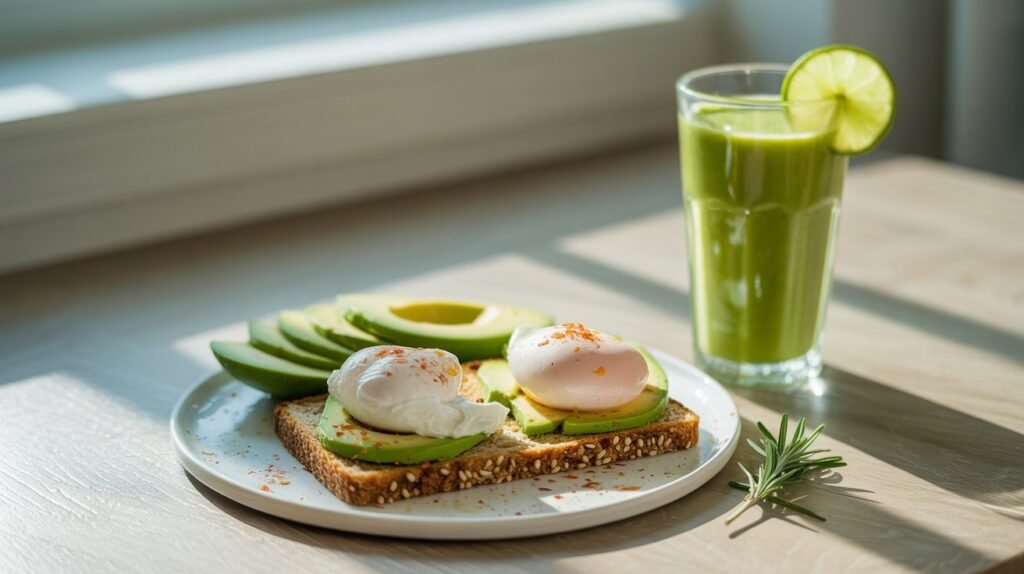
Key Rules for This 7-Day Plan
- Protein with every meal – essential for muscle repair and growth.
- Carb timing matters – eat more carbs around workouts for energy.
- Healthy fats daily – keep hormones and recovery strong.
- Hydration – aim for 2.5–3 liters of water per day.
- Meal prep tip – cook in bulk (chicken, rice, oats) and mix & match to avoid stress.
7-Day Muscle Gain Diet Plan (At a Glance)
Day 1
- Breakfast: Oats with milk, banana, and peanut butter
- Snack: Greek yogurt + handful of almonds
- Lunch: Grilled chicken, rice, and steamed broccoli
- Snack: Protein smoothie (milk + banana + oats)
- Dinner: Salmon, baked sweet potato, mixed salad
- Before Bed: Cottage cheese + walnuts
Day 2
- Breakfast: 3 eggs + whole-grain toast + avocado
- Snack: Apple + 2 boiled eggs
- Lunch: Lean beef, quinoa, roasted veggies
- Snack: Tuna on whole-grain crackers
- Dinner: Chicken stir-fry with brown rice
- Before Bed: Milk + spoon of peanut butter
Day 3
- Breakfast: Protein pancakes (oats, eggs, banana)
- Snack: Cottage cheese + berries
- Lunch: Turkey breast, mashed potatoes, spinach
- Snack: Rice cakes with almond butter
- Dinner: Baked cod, whole-grain pasta, tomato sauce
- Before Bed: Greek yogurt + chia seeds
Day 4
- Breakfast: Scrambled eggs + oats + orange
- Snack: Protein shake with milk + banana
- Lunch: Grilled chicken wrap with veggies
- Snack: Trail mix (nuts + raisins)
- Dinner: Steak, roasted sweet potatoes, green beans
- Before Bed: Low-fat cheese + whole-grain crackers
Day 5
- Breakfast: Overnight oats with berries + flaxseeds
- Snack: Peanut butter sandwich on whole-grain bread
- Lunch: Salmon fillet, rice, asparagus
- Snack: Hard-boiled eggs + an apple
- Dinner: Chicken curry with brown rice
- Before Bed: Warm milk + handful of almonds
Day 6
- Breakfast: Omelet with spinach + whole-grain toast
- Snack: Cottage cheese + pineapple chunks
- Lunch: Ground turkey chili with beans
- Snack: Protein smoothie with oats + milk
- Dinner: Grilled tuna steak, mashed potatoes, salad
- Before Bed: Greek yogurt + spoon of peanut butter
Day 7
- Breakfast: Protein oatmeal with banana + walnuts
- Snack: Boiled eggs + fruit
- Lunch: Grilled chicken + rice + mixed veggies
- Snack: Rice cakes with peanut butter
- Dinner: Roast beef, baked sweet potato, green peas
- Before Bed: Cottage cheese + chia seeds
Shopping List Essentials for the Week
- Proteins: Eggs, chicken breast/thighs, turkey, lean beef, tuna, salmon, cottage cheese, Greek yogurt
- Carbs: Oats, rice, sweet potatoes, whole-grain bread, quinoa, pasta, fruit
- Fats: Peanut butter, olive oil, nuts, avocado, seeds
- Veggies: Spinach, broccoli, asparagus, mixed greens, tomatoes, peppers
Why This 7-Day Plan Work
This diet keeps things simple, affordable, and sustainable. By repeating staple foods in different combinations, you stay consistent without getting bored. Each day delivers high protein for growth, steady carbs for energy, and healthy fats for recovery.
Follow this plan for just a few weeks, and you’ll notice more energy in the gym, faster recovery, and steady muscle gain. Pair it with a progressive strength training program, and your results will multiply.
8. Foods to Avoid When Building Muscle
When you’re trying to build muscle, what you don’t eat can be just as important as what you do eat.
Many people hit the gym hard and follow a good diet plan, but they unknowingly sabotage their progress by including foods that slow recovery, cause unnecessary fat gain, or mess with energy levels.
If your goal is to build lean muscle mass, it’s essential to minimize or avoid certain foods that don’t contribute to strength, growth, or long-term health.
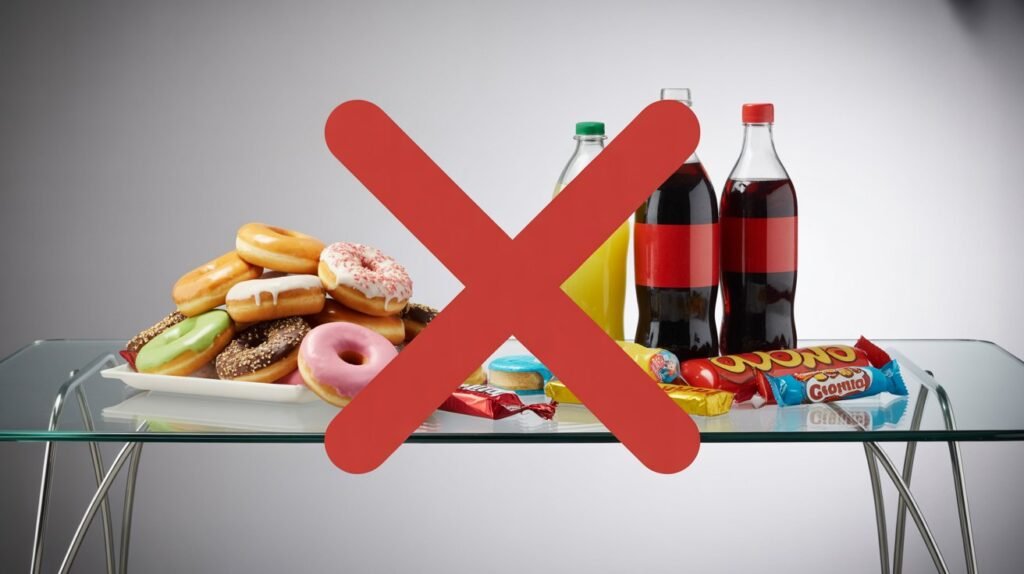
1. Processed Junk Foods
Burgers, fries, chips, packaged snacks, and fast food are usually loaded with trans fats, sodium, and empty calories. While they can spike energy temporarily, they don’t provide quality nutrients your muscles need to recover and grow.
- Why to avoid: They increase fat storage instead of fueling muscle.
- Better option: Swap chips for rice cakes with peanut butter or homemade air-popped popcorn.
2. Sugary Drinks & Sodas
Soda, energy drinks, and bottled fruit juices contain lots of added sugar without any real nutritional value. They can spike blood sugar and lead to fat gain instead of lean muscle growth.
- Why to avoid: High sugar intake increases insulin resistance over time.
- Better option: Stick to water, sparkling water, or homemade smoothies with fruit and protein powder.
3. Excessive Alcohol
Having a drink occasionally won’t ruin your progress, but heavy drinking slows protein synthesis, reduces testosterone, dehydrates your body, and weakens recovery.
- Why to avoid: Alcohol interrupts sleep quality and limits muscle repair.
- Better option: Limit to special occasions, and choose mocktails or flavored sparkling water most of the time.
4. Fried Foods
Deep-fried foods like fried chicken, French fries, and doughnuts are calorie-dense, high in bad fats, and low in nutrients. They’re also inflammatory, which hinders muscle recovery after tough workouts.
- Why to avoid: Slows digestion and can lead to fat gain instead of lean muscle.
- Better option: Air-fry or bake your proteins and potatoes for a healthier version.
5. Low-Protein Snacks
Foods like plain crackers, pastries, or candy bars provide carbs but almost no protein. Since protein is the building block of muscle, these snacks don’t help your growth.
- Why to avoid: They spike energy quickly but crash soon after.
- Better option: Pick high-protein snacks like boiled eggs, Greek yogurt, or beef jerky.
6. Highly Processed Meats
Hot dogs, sausages, deli meats, and bacon are often packed with sodium, preservatives, and unhealthy fats. While they do contain some protein, they aren’t the best choice for long-term health or lean muscle gain.
- Why to avoid: Linked to inflammation and poor heart health.
- Better option: Go for lean chicken, turkey, or fresh fish instead.
7. White Bread & Refined Carbs
Refined carbs like white bread, pastries, and sugary cereals digest quickly, spiking your blood sugar and leaving you hungry again in no time.
- Why to avoid: They don’t sustain energy for intense workouts.
- Better option: Choose whole-grain bread, oats, and brown rice for steady fuel.
Key Takeaway
Building muscle is about consistency, smart training, and smart eating. If you fill your diet with nutrient-dense, protein-rich, whole foods and avoid the common culprits above, you’ll build lean muscle faster, recover better, and stay leaner in the process.
Think of food as your fuel. The cleaner and higher-quality your fuel is, the smoother your body runs and the stronger you become.
9. Foods for Strong Muscles and Bones
When it comes to health and fitness, most people focus only on building muscle — but strong bones are just as important. Your bones act as the foundation for strength, supporting every lift, squat, and push-up.
Without healthy bones, muscle growth can’t reach its full potential, and injuries become more likely. That’s why eating the right foods for both muscles and bones is key to long-term fitness success.
Below are some of the best foods to power up your muscles while keeping your bones strong and resilient.
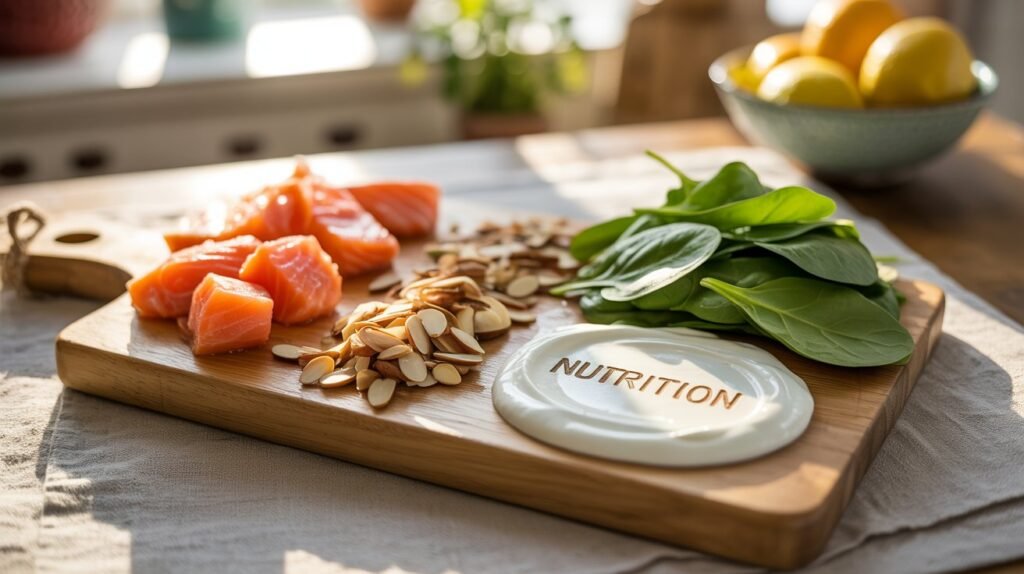
1. Lean Protein Sources
Protein is the building block of muscles, and it also supports bone density. Aim to include a protein source at every meal.
- Best options: Chicken breast, turkey, lean beef, eggs, fish, and Greek yogurt.
- Why they help: They supply amino acids for muscle repair and prevent muscle breakdown.
2. Dairy Products
Dairy is rich in calcium, vitamin D, and protein, a powerful trio for muscle and bone health.
- Best options: Milk, cheese, Greek yogurt, and cottage cheese.
- Why they help: Calcium keeps bones dense, while vitamin D improves calcium absorption and supports muscle contractions.
3. Fatty Fish
Fish like salmon, mackerel, and sardines provide omega-3 fatty acids, vitamin D, and protein.
- Why they help: Omega-3s reduce inflammation, vitamin D boosts bone strength, and protein aids recovery.
4. Leafy Greens
Vegetables like spinach, kale, and broccoli are loaded with calcium, magnesium, and vitamin K.
- Why they help: Vitamin K supports bone density, while magnesium helps regulate muscle function.
5. Nuts & Seeds
Almonds, walnuts, chia seeds, and flaxseeds are excellent sources of healthy fats, magnesium, and plant protein.
- Why they help: They promote hormone balance for muscle growth and supply minerals for bone health.
6. Fruits Rich in Vitamin
Vitamin C plays a role in collagen production, which is important for both muscles and bones.
- Best options: Oranges, strawberries, kiwis, and papayas.
- Why they help: Collagen strengthens connective tissue, ligaments, and tendons.
7. Complex Carbohydrates
Carbs are your muscles’ main source of fuel. Choosing complex carbs ensures steady energy for training.
- Best options: Brown rice, oats, quinoa, sweet potatoes, and whole-grain bread.
- Why they help: They replenish glycogen stores and fuel intense workouts.
8. Eggs
Eggs are a powerhouse food with high-quality protein, vitamin D, and phosphorus.
- Why they help: They support muscle recovery and bone mineralization.
9. Beans & Legumes
Beans, lentils, and chickpeas are budget-friendly and packed with protein, magnesium, and fiber.
- Why they help: They build muscle, stabilize energy, and provide minerals for bone strength.
10. Fortified Foods
Some foods are enriched with extra nutrients like calcium, vitamin D, and protein.
- Best options: Fortified plant-based milks, cereals, and protein bars.
- Why they help: Great alternatives for those who don’t consume dairy but still need strong muscles and bones.
Quick Takeaway
Strong muscles and bones don’t come from training alone — they come from fueling your body with the right nutrients.
By eating a balanced mix of protein-rich foods, calcium-packed sources, healthy fats, and vitamins, you’ll not only build lean muscle but also create a strong skeletal foundation to support it.
Think of it this way: Muscles are the engine, bones are the frame — you need both working together for true strength and longevity.
10. Quick Muscle-Building Foods
Building muscle doesn’t always require long cooking sessions or fancy recipes. Sometimes, you just need quick, high-protein, nutrient-dense foods you can grab on the go.
These foods are perfect for busy people who want to fuel their workouts, speed up recovery, and stay consistent with their muscle-building goals without spending hours in the kitchen.
Below is a list of the best quick muscle-building foods that are convenient, affordable, and effective.
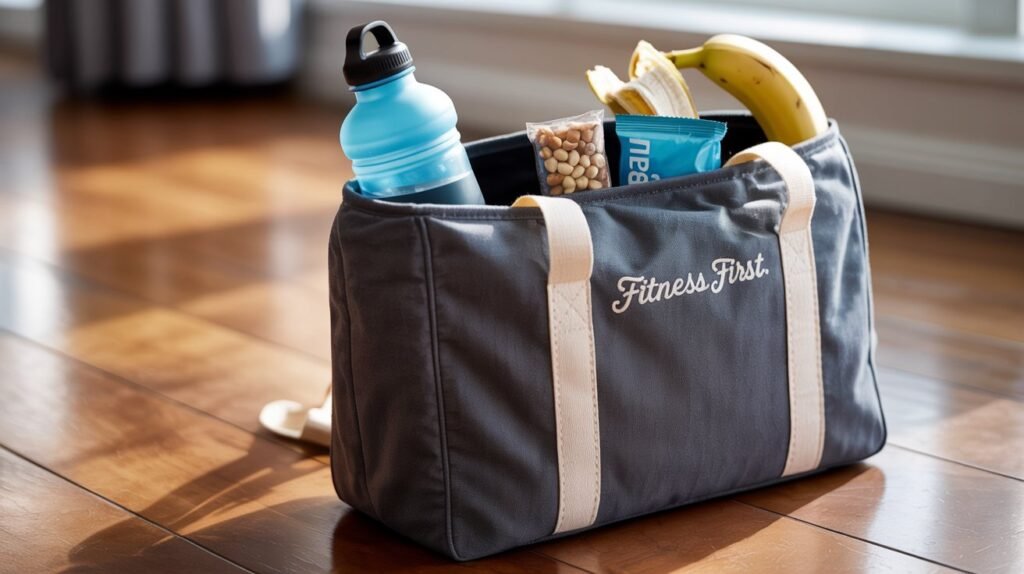
1. Eggs
Eggs are one of the most complete sources of protein, containing all the essential amino acids your muscles need to grow. They also provide healthy fats and vitamins that support recovery.
- Quick tip: Boil several eggs in advance and keep them in the fridge for easy snacks.
2. Greek Yogurt
Greek yogurt contains nearly twice the protein of regular yogurt and is also rich in calcium and probiotics for digestion. It’s great for both muscle repair and bone strength.
- Quick tip: Eat it plain, or add fruit and oats for a balanced post-workout snack.
3. Canned Tuna
Canned tuna is lean, high in protein, and ready to eat straight from the can. It’s a classic budget-friendly option for anyone trying to gain muscle without spending much.
- Quick tip: Mix with avocado or plain yogurt for a healthier alternative to mayonnaise.
4. Peanut Butter
Peanut butter provides protein, healthy fats, and plenty of calories, making it a great choice for muscle gain, especially for those who struggle to eat enough.
- Quick tip: Spread on whole-grain bread, rice cakes, or apple slices.
5. Cottage Cheese
Cottage cheese is packed with casein, a slow-digesting protein that feeds your muscles over several hours, making it perfect before bed.
- Quick tip: Combine with fruit, nuts, or seeds for a nutrient-dense snack.
6. Rotisserie Chicken
A pre-cooked rotisserie chicken is one of the easiest ways to get a protein-rich meal without spending time cooking.
- Quick tip: Pair with rice and vegetables for a complete, balanced plate.
7. Protein Shakes
Protein powders are a fast and convenient way to get high-quality protein, especially post-workout when your muscles need quick fuel.
- Quick tip: Blend with oats, banana, or peanut butter for a more filling shake.
8. Sweet Potatoes
Sweet potatoes are an excellent source of complex carbohydrates, which provide long-lasting energy for workouts and recovery.
- Quick tip: Microwave a sweet potato for 5–7 minutes for a fast carb source.
9. Leafy Greens
Spinach, kale, and other greens are rich in minerals like magnesium and calcium, which play a role in muscle contraction and bone strength.
- Quick tip: Add them to omelets, wraps, or protein smoothies.
10. Lean Deli Meats (in moderation)
Low-sodium turkey or chicken slices can provide a quick and easy protein source when you need something fast.
- Quick tip: Make a simple sandwich with whole-grain bread and vegetables for a balanced meal.
Bonus Quick Snacks for Muscle Gain
- Hard-boiled eggs
- Trail mix with nuts and dried fruit
- Low-sodium beef jerky
- Rice cakes with nut butter
- Cheese sticks
Final Thoughts
Quick muscle-building foods don’t have to be complicated. By keeping high-protein, nutrient-dense options like eggs, Greek yogurt, canned tuna, and protein shakes on hand, you can stay consistent with your nutrition even when life gets busy.
Consistency matters more than perfection — a simple snack with quality protein can be just as effective as a full meal when it comes to fueling growth and recovery.
11. Top 10 Bodybuilding Foods
Building muscle requires more than just lifting heavy weights — it starts in the kitchen. The foods you eat fuel your workouts, repair muscle tissue, and support steady growth.
If you want to maximize results, focus on nutrient-dense foods that deliver protein, healthy carbs, and essential fats.
Here are the top 10 bodybuilding foods every muscle-gain diet should include:
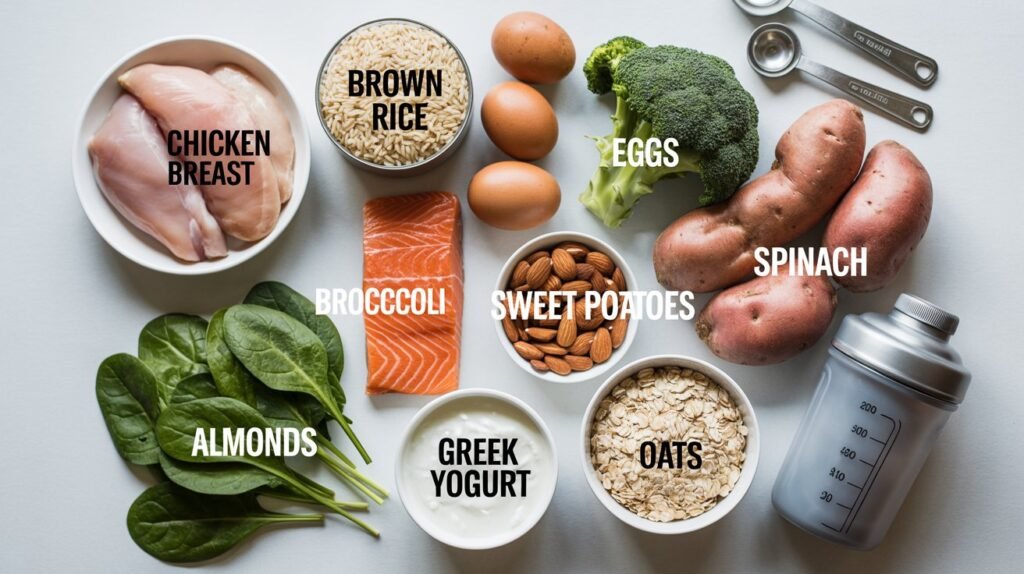
1. Chicken Breast
A staple in bodybuilding diets, chicken breast is high in lean protein, low in fat, and versatile for meal prep. It helps repair muscle fibers and supports steady growth.
2. Eggs
Packed with high-quality protein and healthy fats, eggs are one of the most efficient muscle-building foods. The yolk provides vitamins, minerals, and cholesterol that aid hormone production for muscle growth.
3. Salmon
Rich in protein and omega-3 fatty acids, salmon not only supports muscle repair but also improves joint health and reduces inflammation — essential for heavy training recovery.
4. Greek Yogurt
Higher in protein than regular yogurt, Greek yogurt contains both whey and casein, giving you fast and slow-digesting proteins to fuel recovery throughout the day.
5. Lean Beef
Lean cuts of beef are loaded with protein, iron, zinc, and B vitamins, all of which are crucial for energy production and muscle repair.
6. Oats
Oats are a slow-digesting carbohydrate, providing long-lasting energy for intense workouts. Pair them with eggs or protein powder for a muscle-friendly breakfast.
7. Cottage Cheese
Cottage cheese is rich in casein protein, making it perfect before bed. It helps prevent muscle breakdown overnight and supports steady recovery.
8. Brown Rice
Brown rice offers complex carbohydrates, fiber, and trace minerals. It’s an excellent source of long-lasting energy, ensuring you have fuel for training and recovery.
9. Almonds
Almonds provide healthy fats, protein, and vitamin E. They support hormone health, boost recovery, and make an ideal on-the-go muscle-building snack.
10. Whey Protein Powder
While whole foods should form the foundation of your diet, whey protein is a convenient way to hit your daily protein goals, especially post-workout when your muscles need quick nourishment.

Ready to turn your muscle gain plan into real results?
Don’t let your hard work go to waste — the right nutrition is everything.
Optimum Nutrition Gold Standard Whey gives your muscles the fuel they need to grow, recover, and get stronger with every workout.
Trusted by pro athletes and everyday lifters
Clean, effective, and easy to mix
Build muscle — the smart way
Tap here to grab your Gold Standard Whey on Amazon and start seeing results faster.
12. What Are 5 Body Building Foods?
When it comes to building muscle, your food choices matter just as much as your workouts.
The right bodybuilding foods provide protein for muscle repair, carbohydrates for energy, and healthy fats for hormone support.
If you want a simple starting point, here are 5 of the best bodybuilding foods to include in your diet:
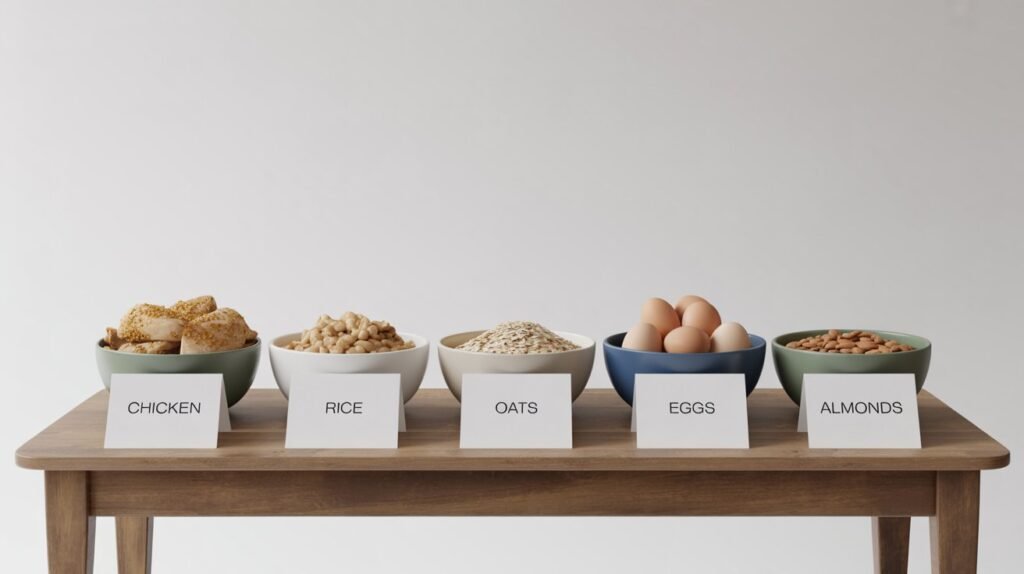
1. Eggs
Eggs are one of the most complete sources of protein, containing all nine essential amino acids. The yolks also provide healthy fats and vitamins that support muscle recovery and hormone production.
2. Chicken Breast
Chicken breast is lean, affordable, and versatile. It’s rich in protein without excess fat, making it perfect for anyone aiming to gain muscle while keeping body fat low.
3. Salmon
Salmon delivers high-quality protein plus omega-3 fatty acids. These healthy fats reduce inflammation, protect joints, and improve recovery — all crucial for consistent training.
4. Oats
Oats are an excellent complex carbohydrate source, providing steady energy for workouts. Pairing oats with a protein source like eggs or whey powder makes for a balanced bodybuilding meal.
5. Greek Yogurt
Greek yogurt is loaded with protein and also contains probiotics that improve digestion. Since it includes both whey (fast-digesting) and casein (slow-digesting), it fuels muscles throughout the day.
These five foods create a solid foundation for any muscle-building diet. They’re easy to find, affordable, and provide the nutrients your body needs to grow stronger.
FAQs About the 5 Best Bodybuilding Foods
1. Can I build muscle with just these 5 foods?
Yes, you can make great progress by including these foods in your diet. However, variety is important. Add other protein sources (like lean beef or tofu), vegetables, fruits, and whole grains for a balanced nutrition plan.
2. How many eggs should I eat per day for muscle growth?
For most people, 2–4 eggs per day is safe and effective. If you’re very active and not exceeding your overall calorie needs, you can eat more. Always balance whole eggs with other protein sources.
3. Is chicken breast better than other meats for bodybuilding?
Chicken breast is lean and high in protein, which makes it a top choice. But other meats like lean beef, turkey, and fish are also excellent because they provide additional nutrients such as iron, creatine, and omega-3s.
4. Why is salmon recommended for bodybuilding?
Salmon combines protein and omega-3 fats, which support muscle growth, reduce inflammation, and help your body recover faster after workouts.
5. Can Greek yogurt help me build muscle if I’m lactose intolerant?
Some people with lactose intolerance can still tolerate Greek yogurt because it has less lactose than regular yogurt. If not, you can try lactose-free Greek yogurt or a plant-based protein alternative like soy yogurt.
6. When is the best time to eat oats for muscle gain?
Oats are best eaten in the morning or before a workout because they provide long-lasting energy. Pair them with protein (like eggs or whey protein) for a balanced meal.
7. Do I need supplements if I eat these foods?
Not necessarily. If your diet already includes these foods along with other whole, nutrient-dense options, you can build muscle without supplements.
However, many athletes still use whey protein or creatine for convenience and performance.
Conclusion
If your goal is to build muscle, the food you put on your plate matters just as much as the effort you put into the gym.
Training creates the stimulus for muscle growth, but it’s nutrition that provides the building blocks for your body to actually repair, recover, and grow stronger. That’s why focusing on the right foods is essential.
The five bodybuilding foods we highlighted — eggs, chicken breast, salmon, oats, and Greek yogurt — are not just popular by chance.
Each of them provides a unique set of nutrients that directly support muscle gain: eggs supply high-quality protein and healthy fats, chicken breast delivers lean protein for clean bulking, salmon adds omega-3s for recovery and joint health, oats give you slow-releasing carbs for steady energy, and Greek yogurt fuels your muscles with both fast- and slow-digesting protein.
Of course, no single food will magically build muscle on its own. The real key is how you combine these foods into a balanced, consistent diet.
Think of them as your “foundation foods” — reliable, nutrient-dense staples you can return to again and again while mixing in other lean proteins, whole grains, fruits, vegetables, nuts, and seeds for variety.
Another important factor is timing and consistency. Eating protein-rich meals throughout the day, fueling your workouts with complex carbs, and recovering with a mix of protein and healthy fats will give your body the resources it needs to grow.
Supplements can be useful for convenience, but they should never replace whole foods — especially when you already have powerhouse options like these in your daily diet.
The bottom line? If you stick to these five bodybuilding foods while training hard, staying hydrated, and getting enough rest, you’ll put yourself in the best position to build muscle naturally and sustainably.
Over time, this balanced approach will not only improve your physique but also support your long-term health and performance.
